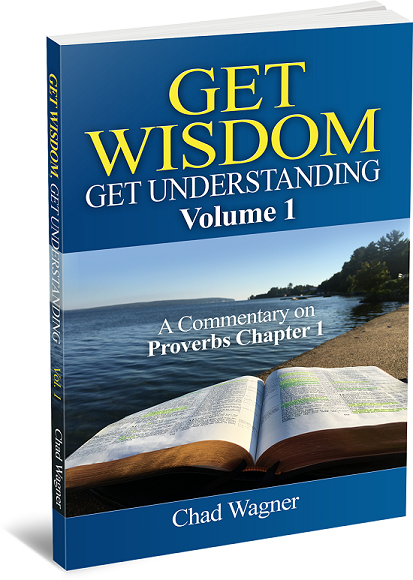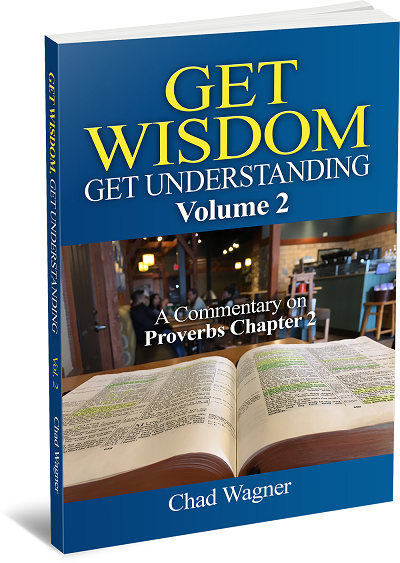Blog - Proverbs 3:9


Contained in this verse and the next is both a commandment from God and a promise of blessing to those who keep it. Giving to God of our substance, which is our "possessions, goods, estate; means, wealth" (OED) is a means to honour Him, which is to "do honour to, pay worthy respect to (by some outward action); to worship, perform one's devotions to; to do obeisance or homage to; to celebrate" (OED). Therefore, a key element of worshiping God is giving a portion of our wealth to Him. We live in a nation "whose God is their belly" (Php 3:19), whom they honour in the way of the prodigal son who "wasted his substance with riotous living" (Luk 15:13). This verse is an imperative statement, not a suggestion for the people of God. The following is something to consider. The word of God also commands us to give of our substance to the government in the form of taxes for the service they provide.
Rom 13:6-7 - For for this cause pay ye tribute also: for they are God's ministers, attending continually upon this very thing. 7 Render therefore to all their dues: tribute to whom tribute is due; custom to whom custom; fear to whom fear; honour to whom honour.
Why is it that some Christians obey the commandment to honour the government with their substance, but refuse, neglect, or forget to honour God with it? Both are commandments from God, but the former is more often obeyed because of the belief that to not do so will result in severe punishment, such as imprisonment or death. The government is not the only one that promises painful judgment to those who don't give them their due. God likewise threatens to curse and punish those who don't give Him His due.
Mal 3:8-9 - Will a man rob God? Yet ye have robbed me. But ye say, Wherein have we robbed thee? In tithes and offerings. 9 Ye are cursed with a curse: for ye have robbed me, even this whole nation.
Hag 1:9-11 - Ye looked for much, and, lo, it came to little; and when ye brought it home, I did blow upon it. Why? saith the LORD of hosts. Because of mine house that is waste, and ye run every man unto his own house. 10 Therefore the heaven over you is stayed from dew, and the earth is stayed from her fruit. 11 And I called for a drought upon the land, and upon the mountains, and upon the corn, and upon the new wine, and upon the oil, and upon that which the ground bringeth forth, and upon men, and upon cattle, and upon all the labour of the hands.
Deut 18:1-5 - The priests the Levites, and all the tribe of Levi, shall have no part nor inheritance with Israel: they shall eat the offerings of the LORD made by fire, and his inheritance. 2 Therefore shall they have no inheritance among their brethren: the LORD is their inheritance, as he hath said unto them. 3 And this shall be the priest's due from the people, from them that offer a sacrifice, whether it be ox or sheep; and they shall give unto the priest the shoulder, and the two cheeks, and the maw. 4 The firstfruit also of thy corn, of thy wine, and of thine oil, and the first of the fleece of thy sheep, shalt thou give him. 5 For the LORD thy God hath chosen him out of all thy tribes, to stand to minister in the name of the LORD, him and his sons for ever.
Eze 44:30 - And the first of all the firstfruits of all things, and every oblation of all, of every sort of your oblations, shall be the priest's: ye shall also give unto the priest the first of your dough, that he may cause the blessing to rest in thine house.
2Ch 31:4 - Moreover he commanded the people that dwelt in Jerusalem to give the portion of the priests and the Levites, that they might be encouraged in the law of the LORD.
Neh 13:10-12 - And I perceived that the portions of the Levites had not been given them: for the Levites and the singers, that did the work, were fled every one to his field. 11 Then contended I with the rulers, and said, Why is the house of God forsaken? And I gathered them together, and set them in their place. 12 Then brought all Judah the tithe of the corn and the new wine and the oil unto the treasuries.
1Co 9:6-14 - Or I only and Barnabas, have not we power to forbear working? 7 Who goeth a warfare any time at his own charges? who planteth a vineyard, and eateth not of the fruit thereof? or who feedeth a flock, and eateth not of the milk of the flock? 8 Say I these things as a man? or saith not the law the same also? 9 For it is written in the law of Moses, Thou shalt not muzzle the mouth of the ox that treadeth out the corn. Doth God take care for oxen? 10 Or saith he it altogether for our sakes? For our sakes, no doubt, this is written: that he that ploweth should plow in hope; and that he that thresheth in hope should be partaker of his hope. 11 If we have sown unto you spiritual things, is it a great thing if we shall reap your carnal things? 12 If others be partakers of this power over you, are not we rather? Nevertheless we have not used this power; but suffer all things, lest we should hinder the gospel of Christ. 13 Do ye not know that they which minister about holy things live of the things of the temple? and they which wait at the altar are partakers with the altar? 14 Even so hath the Lord ordained that they which preach the gospel should live of the gospel.
Another way to give to God under the Old Testament was to give to the poor, the widows, and the fatherless.
Deut 26:12-13 - When thou hast made an end of tithing all the tithes of thine increase the third year, which is the year of tithing, and hast given it unto the Levite, the stranger, the fatherless, and the widow, that they may eat within thy gates, and be filled; 13 Then thou shalt say before the LORD thy God, I have brought away the hallowed things out of mine house, and also have given them unto the Levite, and unto the stranger, to the fatherless, and to the widow, according to all thy commandments which thou hast commanded me: I have not transgressed thy commandments, neither have I forgotten them:
Pro 19:17 - He that hath pity upon the poor lendeth unto the LORD; and that which he hath given will he pay him again.
Rom 12:13 - Distributing to the necessity of saints; given to hospitality.
Gal 2:9-10 - And when James, Cephas, and John, who seemed to be pillars, perceived the grace that was given unto me, they gave to me and Barnabas the right hands of fellowship; that we should go unto the heathen, and they unto the circumcision. 10 Only they would that we should remember the poor; the same which I also was forward to do.
1Ti 5:16 - If any man or woman that believeth have widows, let them relieve them, and let not the church be charged; that it may relieve them that are widows indeed.
Jas 1:27 - Pure religion and undefiled before God and the Father is this, To visit the fatherless and widows in their affliction, and to keep himself unspotted from the world.
2Ch 31:4-5 - Moreover he commanded the people that dwelt in Jerusalem to give the portion of the priests and the Levites, that they might be encouraged in the law of the LORD. 5 And as soon as the commandment came abroad, the children of Israel brought in abundance the firstfruits of corn, wine, and oil, and honey, and of all the increase of the field; and the tithe of all things brought they in abundantly.
Giving the firstfruits was proportional giving. If the crop was plenteous, the firstfruits would be plenteous; if the crop was paltry due to a drought, the firstfruits would be paltry. What about today under the New Testament? There is no explicit commandment to give ten percent in the New Testament, but it does teach proportional giving: "let every one of you lay by him in store, as God hath prospered him" (1Co 16:2). If God has prospered us with much, then we should give more; if God has prospered us with little, then we should give less. Without a specified percentage given by God in the New Testament, what proportion of his income should a Christian then give? That is up to each man to decide for himself as "he purposeth in his heart" (2Co 9:7). As for this Christian and his house, we will walk in the steps of our fathers in the faith, Abraham and Jacob, and follow their example.
Heb 7:1-6 - For this Melchisedec, king of Salem, priest of the most high God, who met Abraham returning from the slaughter of the kings, and blessed him; 2 To whom also Abraham gave a tenth part of all; first being by interpretation King of righteousness, and after that also King of Salem, which is, King of peace; 3 Without father, without mother, without descent, having neither beginning of days, nor end of life; but made like unto the Son of God; abideth a priest continually. 4 Now consider how great this man was, unto whom even the patriarch Abraham gave the tenth of the spoils. 5 And verily they that are of the sons of Levi, who receive the office of the priesthood, have a commandment to take tithes of the people according to the law, that is, of their brethren, though they come out of the loins of Abraham: 6 But he whose descent is not counted from them received tithes of Abraham, and blessed him that had the promises.
Gen 28:20-22 - And Jacob vowed a vow, saying, If God will be with me, and will keep me in this way that I go, and will give me bread to eat, and raiment to put on, 21 So that I come again to my father's house in peace; then shall the LORD be my God: 22 And this stone, which I have set for a pillar, shall be God's house: and of all that thou shalt give me I will surely give the tenth unto thee.
